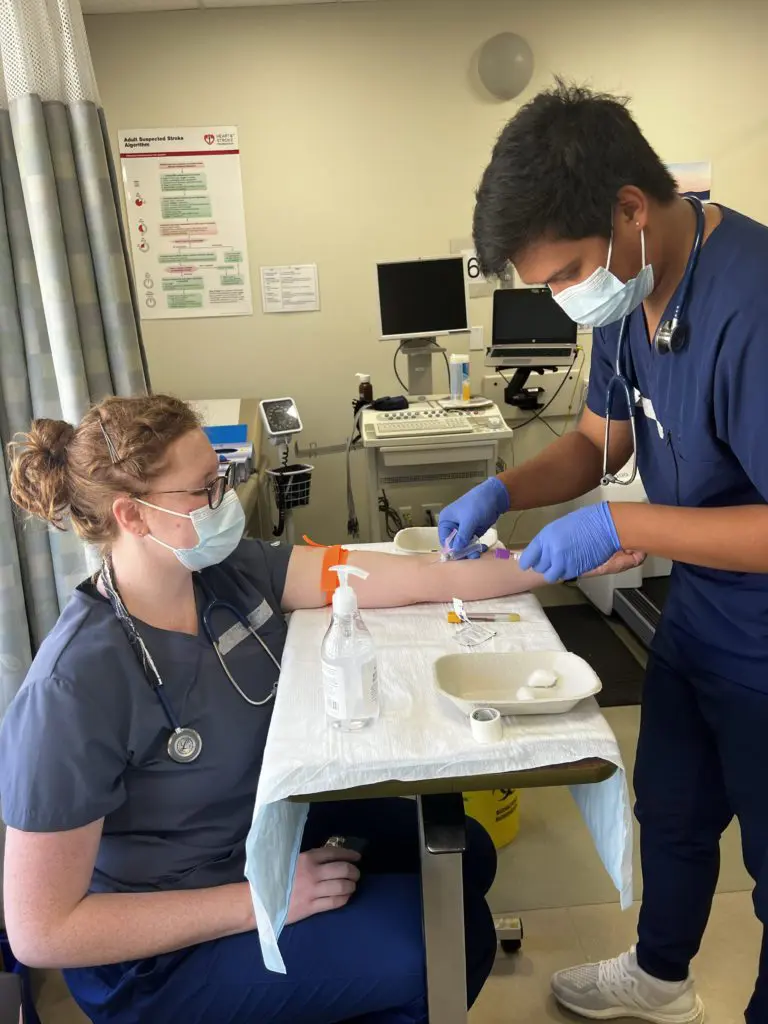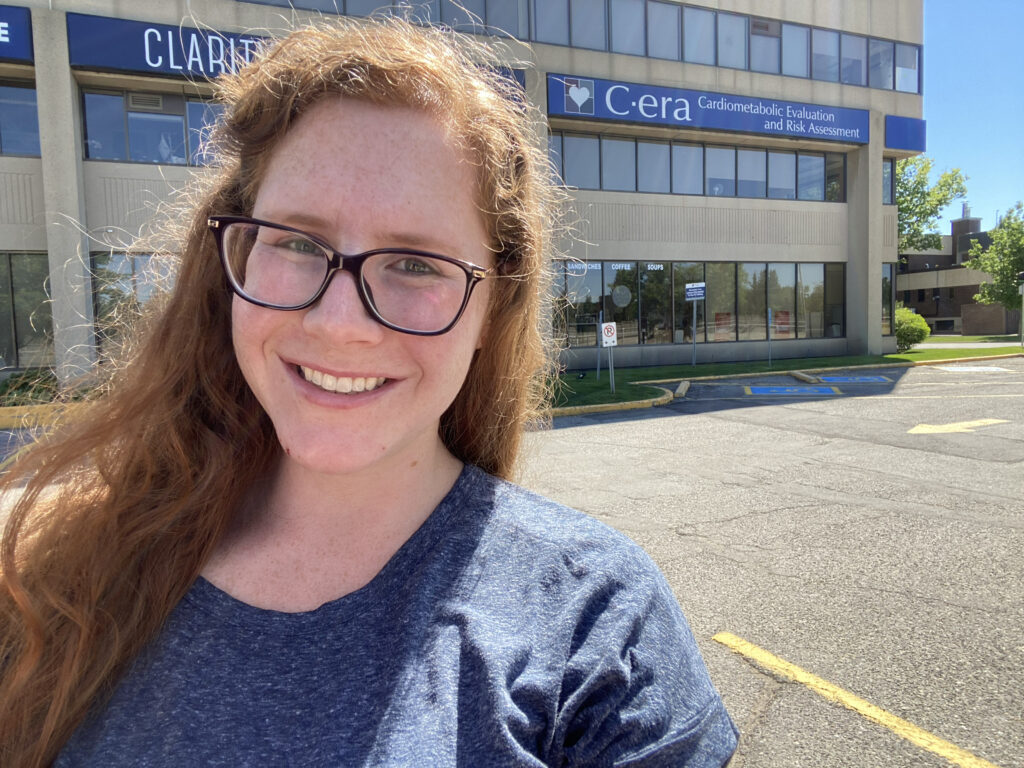Time has just been flying by!
I’m now in my last week of the second lab block and it is also the last time I will see my classmates until our Cardiology Technologist graduation in spring. This three-week lab consisted of exercise tolerance testing, also known as stress testing, phlebotomy, and a two-day lab on Holter monitoring.
What’s Stress Testing?
 Stress testing involves a patient walking on a treadmill to observe their cardiovascular response to exercise, while the Cardiology Technologist monitors their blood pressure, heart rate, and ECG.
Stress testing involves a patient walking on a treadmill to observe their cardiovascular response to exercise, while the Cardiology Technologist monitors their blood pressure, heart rate, and ECG.
This lab really got us thinking about everything we had done so far. Our ECG interpretation skills are very important during this test, along with an understanding of what medications are used to treat certain conditions and what to do during life-threatening situations.
We went over many roleplay scenarios during labs. This was fun to practice! Some students acted as patients with different medical conditions, medications, and history. A student acting as the Cardio Tech conducted the test, asked all required questions, and decided when to stop the test depending on the scenario. It prepared us for our midterm and final exams.
An arm to practice on
Phlebotomy was something I was a little nervous for, not because I would be seeing blood but because I would be the one holding the needle! Whenever I used to have my blood collected, I would always look away when my blood was drawn.
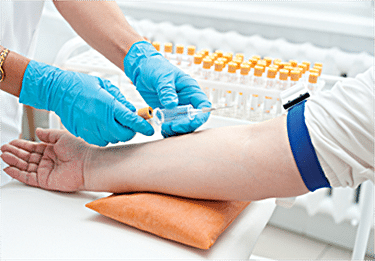
However, by the end of this lab block, we were literally offering our arms to the other students for practice! We had to complete a minimum of 20 blood collections, half with straight needles (the ones that are normally used to draw blood) and the other half with butterfly needles. A few volunteers would come in each day, so we would have more arms to practice on.
Organizing your stay during the lab block
When we weren’t focussing on phlebotomy or stress testing, we were practicing our ECG interpretation skills, studying cardiac pathophysiology like congenital heart defects, and learning how to prepare IV bags and tubing. On weekdays, our labs were scheduled for the evenings, while on weekends it was during the day. Thankfully, I was able to find a place to stay in Halifax and could walk to my labs.
My tip for anyone doing this program in the future would be to book your places to stay as soon as you find out your lab dates. There are places such as suites (which include furniture, kitchen etc.) which offer short-term stays in the area that are perfect for these lab blocks.
Although labs were a lot of work, time seemed to go by very fast since we were so busy. I felt super confident in my skills by the end of the lab, and am very excited to start practicing them at the hospital!
Check out a video of our cardio tech students in action.




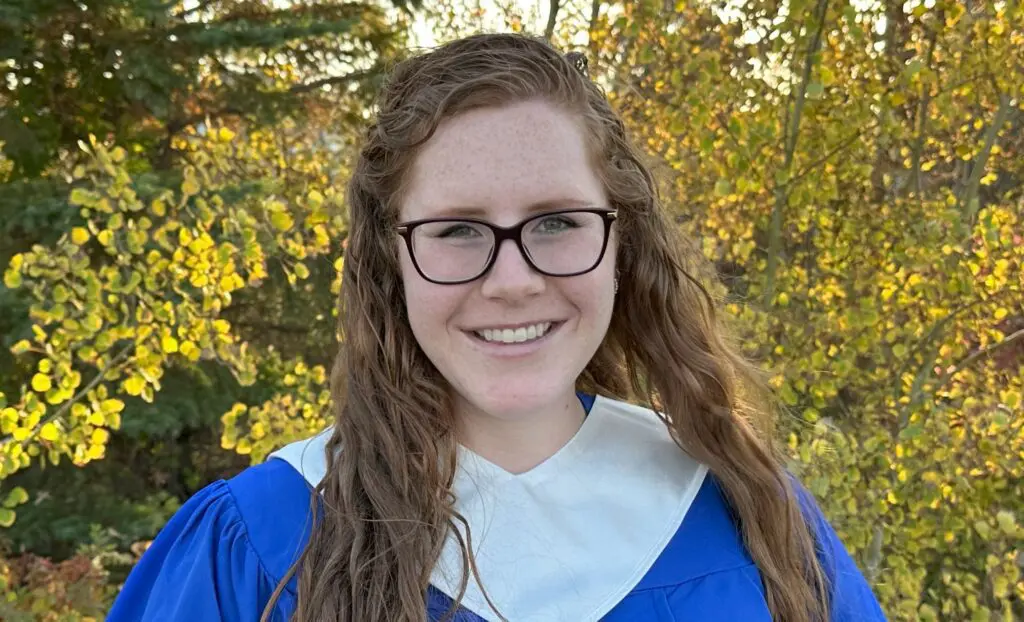

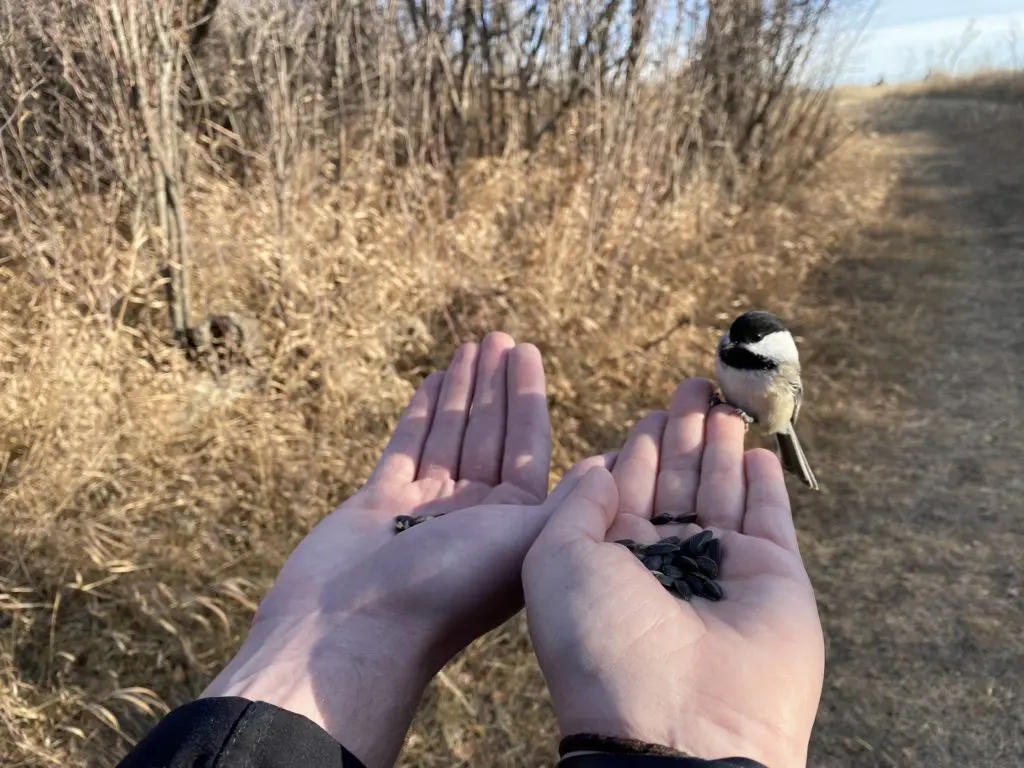
![An ECG demonstrates the extensive antero-septal-lateral myocardial infarction [heart attack] that Taryn witnessed.](https://stenbergcollege.com/wp-content/smush-webp/2022/12/ecg-1024x530.jpg.webp)

